Bailey Skye recently relocated to New York from Seattle with the intentions of creating new safe spaces for queer people of color, such as themselves. Through their solo DIY project, Nightspace, Skye has become an active underground voice for fighting against oppressive social structures in music--most of which praise cisgender white artists and aggressively keep QPOC on the fringes.
Lifted off Nightspace's six-track album, Birth/Decay, Skye has created a new music video for the song, "Breastfed," which they co-directed alongside Hobbes Ginsberg. In the visual, Skye wrestles between reality and fantasy, questioning which world they live in most. The track itself offers an honest examination of Skye's complex queer identity, working through lyrics about self-criticism and the desire for outside affirmation.
Watch the OUT premiere of Nightspace's "Breastfed" video and learn more about their political mission in an exclusive chat, below.
OUT: Where are you from and what informed the artist you've become today?
Bailey Skye: I've spent most of my life in the Seattle area, but just moved to NYC [at] the end of January. I've always wanted to be what I wanted to see: an influential queer artist of color. I didn't know anyone else doing what I was doing for the longest time. It's been beyond beneficial finally meeting, collaborating and becoming good friends with other hardworking QPOC artists. I think an important part about expression, that's helped me during my own creative journey, is knowing you're not alone. There's other people having very similar experiences, who're also addressing them through art.
Describe your practice.
I'm an artist, musician and try to curate inclusive, welcoming events and spaces. When I play live, it can't just be a show; it's not just sound, it's a release--a performance of vulnerability [and] where my sound carries me. I'm a moving piece.
What was your experience like in Seattle?
Seattle was a really nice place for me to grow and experiment. The scene is very close-knit, which was really nice. But it can become routine if you're trying to do more than play house shows and DIY spaces. I started to feel limited; there's only so much you can do there being an artist of color. It's taxing staying in a place that stifles your growth.
It's really interesting because the same straight white writers who applauded the most basic, non cutting-edge, cis bands were always the most hypercritical toward my art and project. It's funny how these trolls try to dissect my craft, and in a way that I never see done to white artists. I don't need that. At this point I know what I'm doing is groundbreaking; the fact that I'm even here and able to be an artist at a time like this--my mere existence is revolutionary and so is all queer artists'.

Photography: Parker Day
What kind of events did you throw in Seattle?
There were very few experimental queer artists of color in Seattle; to be honest, it started to feel isolating. I loved playing with Guayaba a lot--they're incredible. I feel like usually people don't see the importance of supporting QPOC. They either recognize you're a force to be reckoned with, and want to support that, or they get threatened.
Last year I became a member of TUF, an intersectional female/non-binary/trans collective currently based in Seattle. They've treated me very well [and] gave me very tangible paid jobs. Before that I was one of the only curators who tried to host intentional QPOC shows and as a musician, I felt like I was either tokenized or ignored completely.
What do you hope to achieve through Nightspace?
Embracing and expressing all the intersections of myself, as a form of empowerment. Everything that I am defies the systems that support mediocrity and make terrible people successful. My existence defies the constructs of what society wants people to be.
Nightspace is about deconstructing these systems [and] paving the way, so I can begin to offer tangible opportunities to my community--inspiring others [that] they don't need permission to have a voice [and] bringing light to artists these systems are keeping in the shadow of white supremacy. [Creating] space where queer expression can thrive--where we don't have to mold and assimilate to current confinements.
Systematic ignorance demonizes us and it's important that smart queer artists give us a fucking voice. We have to claim it because no one's going to hand it to us. Most of the time we aren't given proper platforms, [so] I'm trying to change that.
Why did you decide to cover Britney Spears' "Gimme More"?
I recently became friends with someone visiting from Mexico, whose really cool band Meth Math covered "Lucky." I had actually been wanting to cover a Britney song, [and] their "Lucky" was so good it inspired me to see it through. I co-produced it with Neek. I just wanted to make a dark industrial cover of a pop song. I didn't have any intention of what effect that'd have.
What was the process for making your "Breastfed" video?
Just me and Hobbes, we messaged back-and-forth about the concept over the summer and the rest fell into place. We filmed it when I was in LA on tour last August. In the video, there's two distinguishable moods: the oversaturated childhood and the nightmare. I won't say too much about the concept--I want the audience to interpret what the dichotomy means to them and how they relate.
How does the video complement the track?
The last few verses are, "Loving an image / An image impure / The cleanest hands couldn't save you / I didn't like my skin / Until you complimented / I hated myself."
My songs always have endless themes, but it loosely focuses on identity and the conflicting feelings that come with that. People praising false idols, being fed propaganda [and] society making promises it can't keep. Constructs that fuck you over if you refuse to satisfy what it wants or wants you to be. Prioritizing parts of your identity that were ignored or society denied completely.
After seeing the finished piece, I questioned which was my reality and which was the dream. The video amazingly highlights this inner struggle. Who is living in this saturated dreamland? Is there a piece of yourself you're suppressing and is it desperate to be accepted?
Related | Non-Binary Rapper M(x)BLOUSE Wrestles with Self-Love on Debut EP
How do you feel your work makes a political statement?
All art is inherently political. I want my work to challenge people who unnecessarily exercise their privilege--to challenge people to look inward and see how their actions may be perpetuating systematic exclusivity. What's the point of being an artist if you're not trying to deconstruct the systems that are fucking over the underprivileged people in your life? If you're not recognizing everything that's keeping those same people from tangible opportunities, you're not radical.
What do you think is your responsibility today as a queer artist in America?
To claim deserved space for everyone I'm here for and care about. Building a platform so I can be more beneficial in uplifting others and taking it into my own hands to amplify our voices. The world better get ready.
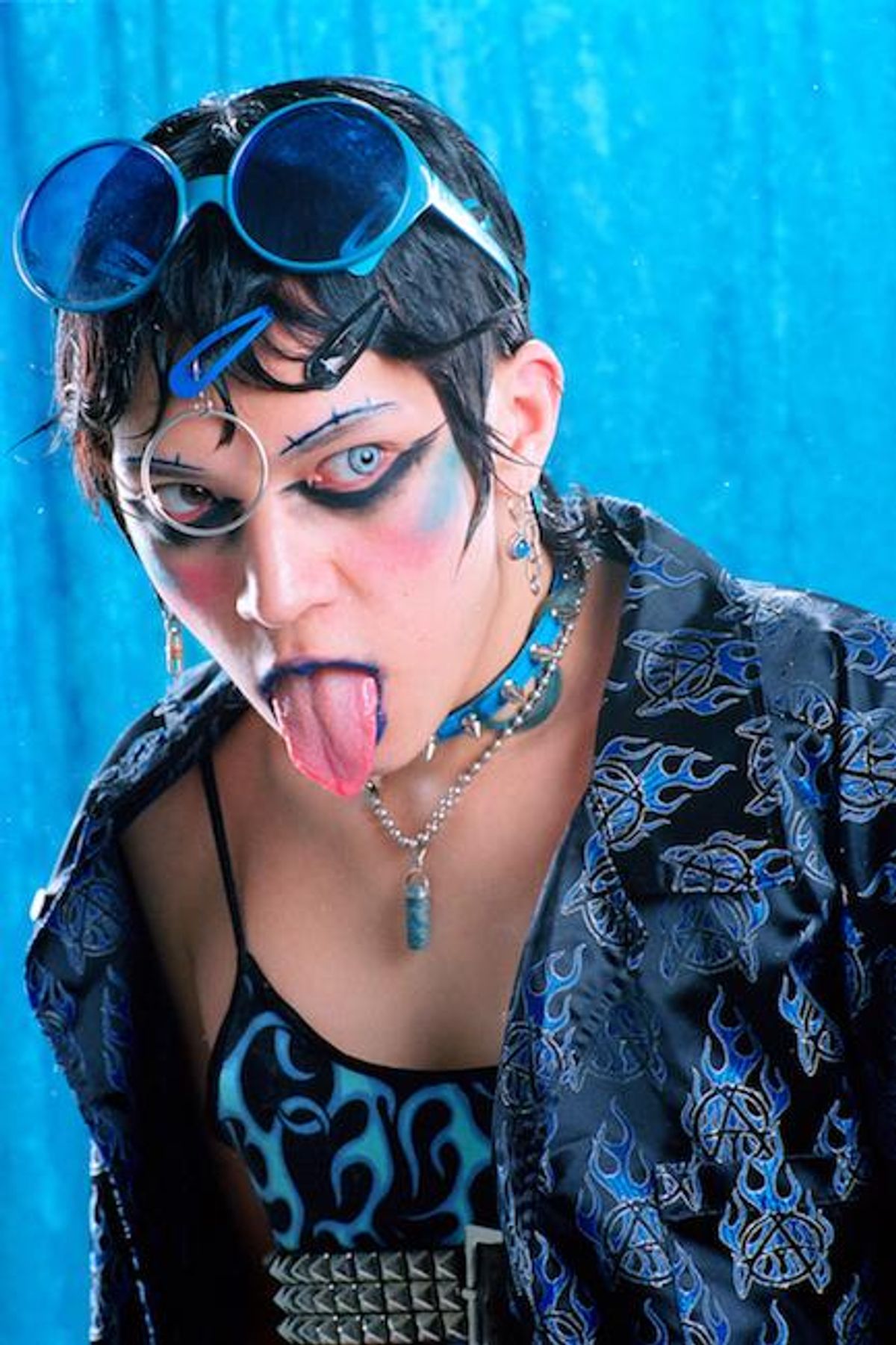

































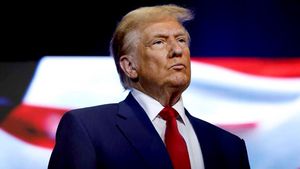






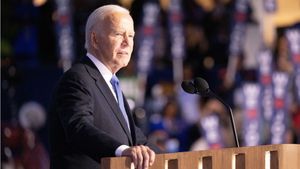
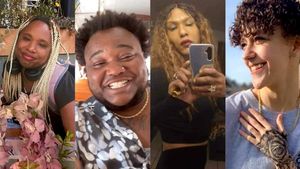












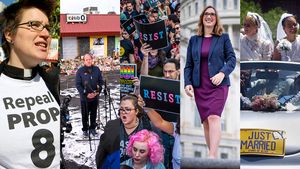
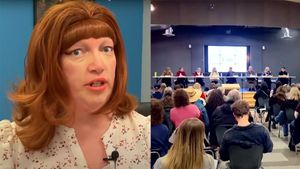






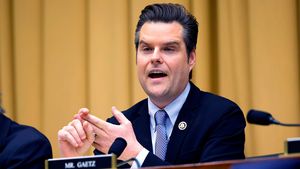

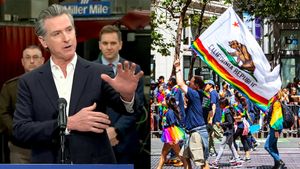












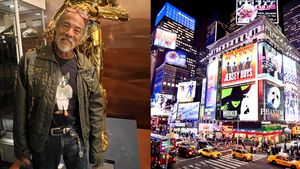
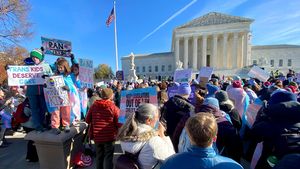


Sexy MAGA: Viral post saying Republicans 'have two daddies now' gets a rise from the right